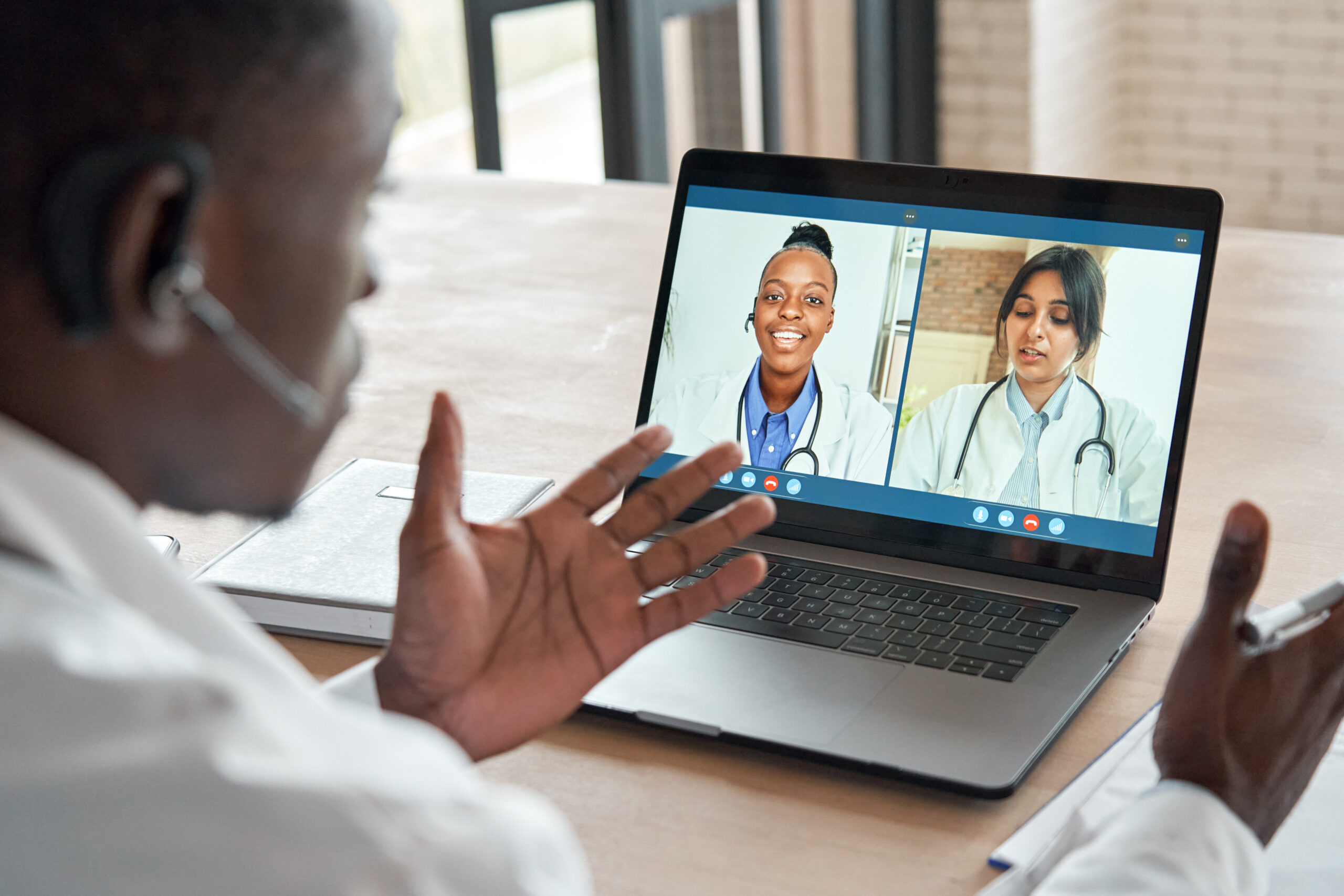How can you make an impact in the lives of people when you’re remote? This is a question that many nurses and case managers have asked over the course of the last few years. Yes, many of the people we speak with feel exhausted by the conditions and expectations they’ve faced in face-to-face healthcare and wellbeing roles, but they can’t imagine what they can accomplish with work from home healthcare management jobs.
The reality is, a world of good can be done for your community without requiring you to overwork yourself in the process (if you feel like you’ve already pushed yourself too far, here are some tips on how to recover from burnout that you should address first). We had a chance to speak with Shavon, one of our remote medical management case managers, to learn about her role, why she loves it, and the impact she has on children and families in Texas. This is just one example of case manager positions through w3r Consulting.
w3r Consulting: Hi Shavon! Thanks for taking some time out of your day to speak with us. How did you get started in your current remote position?
Shavon: A member of the w3r Consulting team reached out to me. I believe my recruiter asked for my resume and then connected me with my current role as medical management case manager in the STAR Kids department. I was previously working for Superior HealthPlan doing a similar role, doing the same job tasks as a therapist, working with clients and parents to meet their needs. It was a smooth transition for me.
w3r Consulting: What is your role like?
Shavon: Currently, I have about 70 to 80 kids on my caseload. Some I have to contact every month, every two months, and every three months. Our company works from an Excel spreadsheet and we see, for example, who needs to be contacted in the month of April. We go down that Microsoft Excel spreadsheet and I divide my tasks. If I have 20 members, I can do five or six each week. I’m able to take one a day or two a day and work that case, giving them all my attention before I move on.
For this position, I have Level 1, Level 2, and Level 3. The majority have mental health issues, but some of them have physical issues along with mental health issues. So, it can be combined. A lot of my members suffer from depression or anxiety. Some may have seizures as well. It’s a blended, complex mixture of cases.
I’m very aware of the different behavioral health diagnosis. We usually refer out for therapists and psychiatrists. Just because we’re doing the case management does not mean we’re doing the therapy part of it. We can provide some therapy – we talk to the kids, see how they’re doing, and provide resources because we are social workers at the end of the day. We do the most with what we can within our case, but if they need weekly meetings or medication, we refer them out for that. Usually, once they’re established with a therapist or a psychiatrist, we follow up with the kid for our own set up time.
w3r Consulting: So you’re a clearinghouse for everything?
Shavon: Right.
w3r Consulting: How long do these relationships usually last?
Shavon: Kids are on our caseload until they turn 21. You get to grow with the parents and the kids. A lot of them are on waivers like the YES waiver, the Home and Community-Based Services (HCS) waiver, and the Texas Home Living Waiver (TxHmL). If they’re no longer on the waiver, they will only stay on the caseload if they receive Supplemental Security Income (SSI) or until they turn 21 and term (unless they move out of state). So, you really have a long relationship with the kids. Most of them are on a lifetime waiver, so you can work with them as long as the family renews yearly.
Is there anything that surprised you when you first started this type of work?
Going through all the assessment questions surprised me. The Screening and Assessment Instrument (SAI) is 40 pages long with a lot of questions and we do that once a year. So, if you don’t know your member or you’re new and you’re not used to the assessment, it will take you more than an hour to complete. We may only cover 20 pages if the child doesn’t have any severe medical needs or they don’t need an attendant in the home. If they do need an attendant in the home to help with ADLs, that’s when you need to do the additional pages of the SAI. For anyone in my role, it’s just important to be aware of that assessment and navigate through it.
When I first started, it was a big wow moment. This is a big assessment that we have to do with the parent and the kid. As you get used to the job and you do so many a week, you say, “Okay, I know which questions to ask, and I know how to combine questions together so it’s not as lengthy.” You figure out which way is the best way to get the assessment done with the family.
Customizing the experience as often as you can?
Right.
w3r Consulting: What do you love about your job?
Shavon: With my past employer, I was remote even before COVID hit and now, even though the restrictions are lifted, we’re still remote. I’ve been in a remote position for the past five or six years. I like being able to work from home and having my own office space. Really, having my own space period. I like not having to commute, being at home in my comfort zone and able to manage myself, I would say. I really do enjoy that part of it.
We all have a very good support system. As far as being able to talk to my coworkers and supervisors, we meet once a month and we have one-on-ones every two weeks. I have a peer who is my trainer, and she contacts me every two or three days to see how things are going or if I need assistance. I feel like I have a very big support system even though I am a remote worker.
Also, I love that I’m able to build a relationship with the kids and parents. Since I might work with them until they’re 21, I have longevity with the job. If I start with a kid who is five or ten, I am going to be able to grow with them if I stay within my position. I get to see them at least every six months and for the yearly assessment.
Since I work from home, I’m able to make my own schedules. I can decide on Friday I’m going to only do visits, or Mondays I’ll only do phone calls. I’m able to rearrange my schedule the way I want it to be as long as I get my stuff in by the end of each month.
I did leave my old job for two years to work for Child Protective Services, and that was a big difference compared to the case manager role. You’re always out in the field, you’re always on the go, you’re in court, you’re doing placements. Being in this role, it’s more remote and a lot quieter. I personally like this position more than working in CPS, because I can control my day and see how my week is going to be.
When you’re working with CPS, you don’t know what is going to happen. You don’t know if a placement will break down. You may be at court longer than expected. At least you can control your day and how things look when you’re in the case manager role – whether you’re working remote or going back into the field.
w3r Consulting: I imagine your transition during the pandemic wasn’t quite as crazy as some other people. Were there any changes to the job because of the pandemic?
Shavon: The workload stayed the same, but the major change was that we couldn’t go out to do visits once COVID hit. That was something that we had always done.
How we did the assessments changed too with COVID. Sometimes it’s best to do those assessments in the home, because sometimes parents or kids don’t want to stay on the phone for an hour. If you do it face-to-face, it seems like you go through it a lot faster and people are more engaged versus me being on the phone with you for an hour asking you all these questions. Plus, I can’t see their reactions.
Some of them need personal care services which may require an attendant in the home. I’m unable to see how you can do your activities of daily living (ADLs) if I’m on the phone versus if I’m in person. I can ask “Have you bathed, brushed, or dressed yourself?” and people can say “Yeah!” but if you’re in person, we can really determine if they can bathe, brush, or dress themselves. Those observations are different from the phone than in person.
w3r Consulting: Thanks for the time, Shavon, and keep up the great work you do in your community!
Want to learn more about how to work remotely as a nurse? Check out our latest opportunities to see remote nurse care manager jobs that can restore the balance in your career.
Related Articles
Why You Don’t Have to Leave Nursing to Cut Your On-the-Job Stress
How to Recover from Nurse Burnout: 4 Tips to Help You Recharge
Curious About How to Work Remotely as a Nurse? Here’s One Nurse’s Success Story


